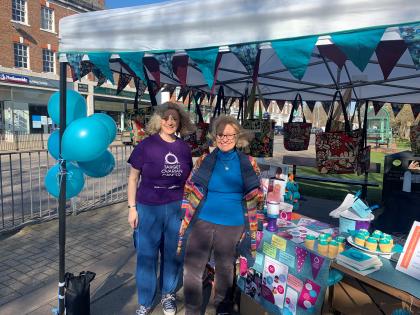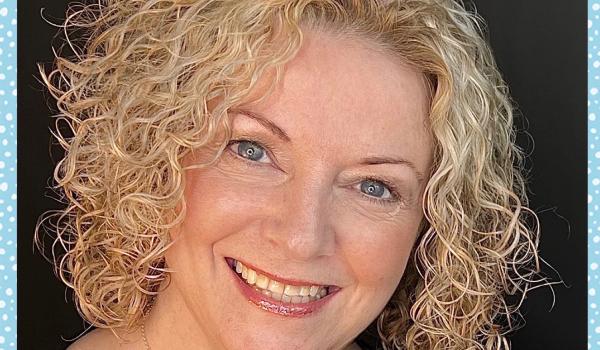Catherine was diagnosed with Stage 3 ovarian cancer in 2019. Since then she's been campaigning to make ovarian cancer a health priority, and to improve early diagnosis.
The weekend before I gave a speech at the House of Lords to urge decision makers to make ovarian cancer a health priority, a friend in the Ovarian Cancer Community died. She accounts for one in 11 women that die every day for ovarian cancer and to me this isn’t acceptable. It has however given me the confidence to share my experience and demand change happens.
Twists and turns of diagnosis
Like many women diagnosed with ovarian cancer my story has many twists and turns. I was working long hours in the City of London and with a daily commute, busy lifestyle plus regularly visiting my sick mum, I was suffering with extreme fatigue.
But, like many women, I ignored this and continued on. Then getting ready for a night out I felt a painful lump in my abdomen. This was in fact a tumour. A fast growing 12cm x 11cm tumour.
During the initial diagnosis stage, my right leg bloated due to DVT and a clot on my lung was also discovered. Following surgery to drain my kidneys, removal of the tumour, total abdominal hysterectomy with bilateral salpingo-oophorectomy, omentectomy and hartman’s procedure, I received six rounds of chemotherapy.
The cancer had spread to my bowels and the surgery resulted in a stoma, an opening on the abdomen that diverts body waste into a pouch on my body. I have undergone reconstructive surgeries and stoma reversal.
Embracing the negative and making a positive
Fortunately, I'm now NED which means there is no evidence of disease. However, a letter from my oncologist in December 2019 states that ‘Catherine has a 20% chance of surviving five years’.
This prognosis is hard to live with, but we now have an opportunity to reduce the number of women receiving this news. I’ve received support from Target Ovarian Cancer and the words of their support line nurse are in my heart every day.
They've enabled me to respect what I’ve been through and allow cancer to walk alongside me as I move forward with my life. I’m determined to embrace the negative and use it to make a positive by using my experience and voice to raise awareness and campaign for change.

Raising my voice – for me and those who can’t
I’m passionate to spread the word about the symptoms of ovarian cancer. The majority of women don’t know about ovarian cancer or the symptoms, and there is the assumption that cervical smear tests detect all gynae cancers.
Two thirds of women with ovarian cancer are diagnosed at stage 3 or 4. There is no screening programme, so raising awareness is the key to ensuring women are aware of the symptoms and can have an informed conversation with their GP.
Voices of charities and advocates is powerful but we need more than individual voices, we need a sustained large-scale government backed symptoms campaign. We need to be clear that a cervical smear does not detect ovarian cancer and highlight the four main symptoms: bloating, abdominal pain, feeling full, urinary symptoms.
Ovarian cancer can be spotted early especially if women know the symptoms and GPs receive regular training.
Demanding urgent action to be taken now
Women across the UK deserve to receive consistent and timely access to treatment and have the best treatment options regardless of their age, background, ethnicity or wherever they live in the four nations.
We need to shorten the diagnostic pathway with the CA125 blood test and an ultrasound carried out at the same time. A delay by not doing so, can lead to women being more unwell when they start their treatment.
In June, I went to Number 10 Downing Street with Target Ovarian Cancer to hand in an open letter signed by over 21,000 people calling for action to be taken on the awareness crisis in ovarian cancer.
We need to work together to achieve a sustained large-scale government backed symptoms campaign and to a shorten the diagnostic pathway. By doing so women can be diagnosed and treated earlier.
We must do everything possible to reduce these awful statistics, letters like mine, and the heartache felt by those diagnosed, their loved ones and friends.

If you’ve been affected by this story and would like to speak to a specialist nurse, you can call our dedicated support line on 020 7923 5475 or contact us: [email protected]. We're open from 9am until 5pm, Monday to Friday.
If reading this story has helped you, join the Ovarian Cancer Community to connect with more people affected by ovarian cancer: www.targetovariancancer.org.uk/onlinecommunity



